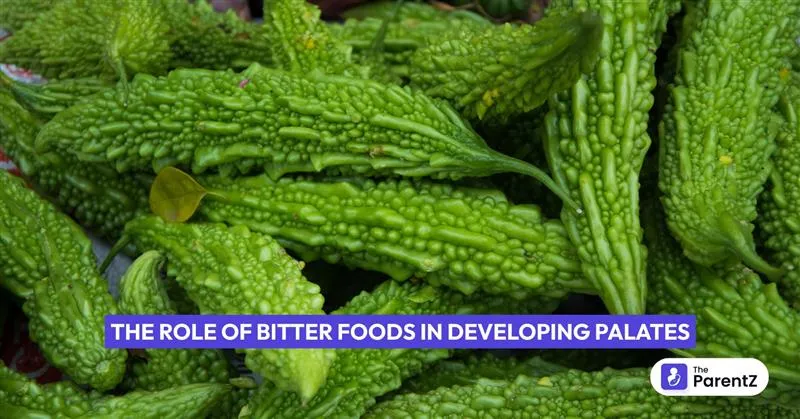As a parent, you’ve probably seen that dramatic grimace when your child tries kale for the first time. The wince, the tongue sticking out, maybe even a theatrical gag. Bitter foods often get the worst rap at the dinner table—but they also play a surprisingly powerful role in shaping your child’s taste preferences and nutritional habits.
Read this article to explore why introducing bitter foods might just be one of the best long-term flavor lessons you can give.
Why Are Bitter Foods Bitter?
Bitter flavors naturally occur in many plant-based foods as a protective mechanism. Historically, bitterness was a warning signal—it meant potential poison. But in today’s world, many of these bitter foods are anything but harmful. In fact, they’re packed with phytonutrients, antioxidants, and vitamins essential for long-term health.
You can consider leafy greens like kale, arugula, and spinach, cruciferous veggies like broccoli, Brussels sprouts, and cauliflower, herbs and spices like turmeric and fenugreek, and even dark chocolate and green tea.
The Science of Acquired Tastes
Children are biologically wired to prefer sweet and salty foods. Evolutionarily, these were safe sources of energy. Bitterness? Not so much. But here’s the good news: taste buds can be trained.
Research shows that the more often a child is exposed to a bitter food, the more likely they are to accept—and eventually enjoy—it. It may take 10 to 15 exposures before that broccoli goes from blech to hmm.
So, if your toddler has rejected spinach three times, don’t give up yet. You’re still in the training zone.
Bitter Foods and Nutrient Power
Many bitter foods are nutrition superstars. Kale, for example, is high in vitamin K, calcium, and fiber. Brussels sprouts contain compounds that support liver health. Bitter gourd, though intense in flavor, is known for its blood sugar–regulating properties.
Teaching your child to tolerate—and eventually enjoy—these foods expands their nutrient intake in powerful ways. It also reduces their dependence on processed, overly sweetened foods that dominate many children’s diets today.
A Bitter-Friendly Plate
You don’t have to go full-on bitter overnight. Start small, mix flavors, and make it fun. Here are a few simple yet helpful ideas:
- Balance it out: Pair bitter veggies with familiar tastes—like roasted sweet potato with kale chips or honey-glazed carrots with sautéed spinach.
- Use dips and dressings: A spoon of yogurt dip or a squeeze of lemon can mellow bitterness and introduce tangy layers.
- Get creative with prep: Roasting, sautéing with garlic, or adding a sprinkle of cheese can transform bitter into beautifully complex.
- Involve your child: Let them help wash the greens, stir the pot, or name the dish something silly like “dino leaves” or “power petals.” Ownership boosts curiosity.
Bitter Foods, Big Lessons
The truth is— learning to enjoy bitter foods teaches more than just flavor tolerance. It builds resilience, open-mindedness, and curiosity. Kids who stretch their palates are often more adventurous eaters later in life. They learn that first impressions aren’t always final and that some good things take time to appreciate.
Final Thoughts
Your child doesn’t have to love kale today. But your gentle, consistent efforts to include bitter foods in their meals are quietly teaching them something big: that not everything has to be sweet to be good. In fact, some of the best things in life—like bittersweet chocolate, strong tea, or a perfectly crisp Brussels sprout—come with a little bite.





Be the first one to comment on this story.